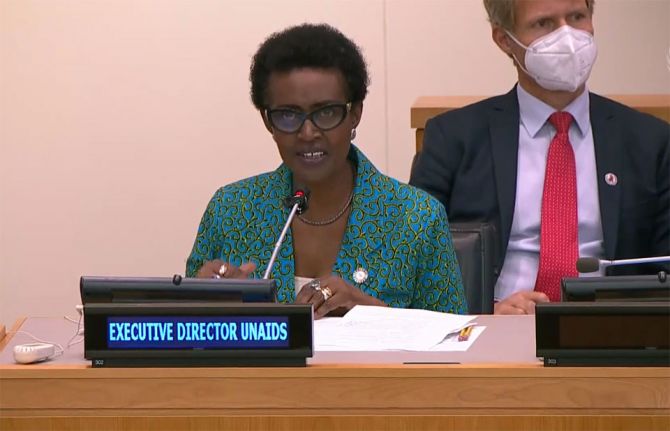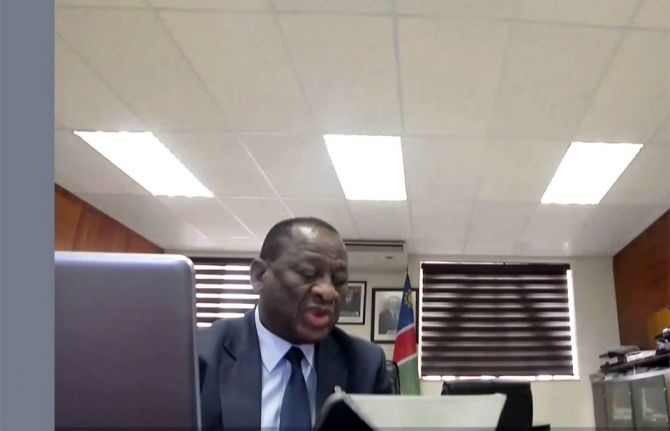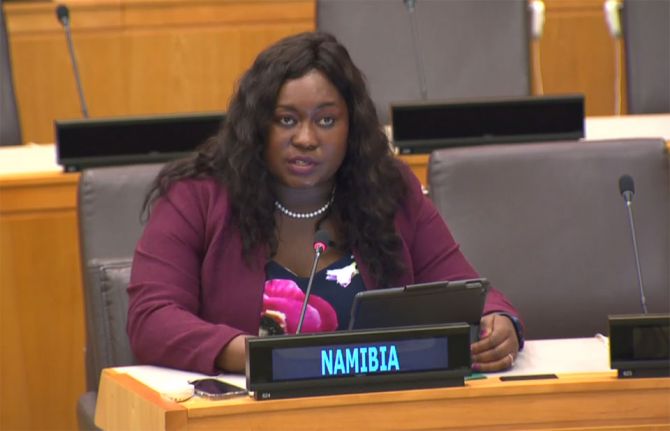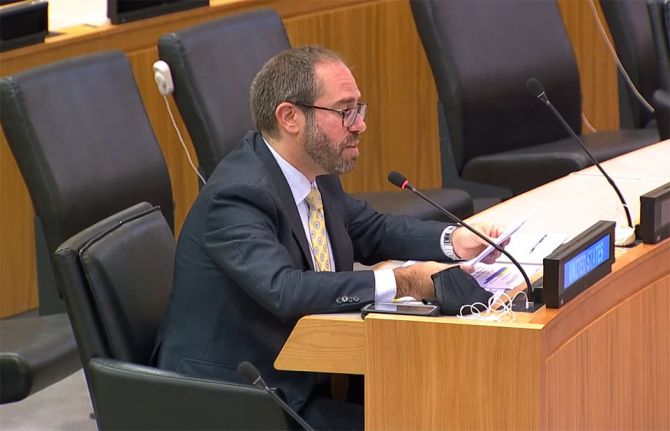




Feature Story
2021 ECOSOC resolution on the Joint Programme adopted by consensus
23 July 2021
23 July 2021 23 July 2021On 22 July, the United Nations Economic and Social Council (ECOSOC) adopted a resolution on the Joint United Nations Programme on HIV/AIDS by consensus, at a hybrid meeting at the United Nations Headquarters in New York, United States of America, presided over by the Vice-President of ECOSOC, Collen Vixen Kelapile, the Permanent Representative of Botswana to the United Nations in New York.
At the meeting, the council considered the 2021 report of the UNAIDS Executive Director, Winnie Byanyima, which she introduced in person, and a report on governance issues by the UNAIDS Programme Coordinating Board (PCB), introduced by its Chair, Kalumbi Shangula, the Minister of Health and Social Services of Namibia.
Following the debate, the Deputy Permanent Representative of Namibia to the United Nations in New York, Helena Ndapewa Kuzee, presented a joint statement by Namibia and Thailand introducing the 2021 resolution on the Joint Programme. The two countries had co-facilitated the negotiations in Geneva, Switzerland, earlier in July in their capacity as, respectively, the Chair and Vice-Chair of the PCB.
They emphasized their gratitude to Member States for having ensured a consensus resolution that spoke to the critical leadership role of the Joint Programme’s Cosponsor and governance model for strategic coherence, through its coordination, results-based focus, inclusive governance and country-level impact. The resolution also recognized the importance of the 2021 United Nations Political Declaration on HIV and AIDS: Ending Inequalities and Getting on Track to End AIDS by 2030 and the Global AIDS Strategy 2021–2026: End Inequalities, End AIDS, and the new 2025 targets to set direction for the response.
Namibia and Thailand cautioned that AIDS is far from over and expressed concern that there is a continuing shortfall in the financing of the HIV response, especially with respect to low- and middle-income countries, and that the COVID-19 pandemic has exacerbated existing inequalities and inequities within and among countries, including the lack of equitable and timely access to safe, quality, effective and affordable COVID-19 vaccines, diagnostics, medicines and medical products. This had created additional setbacks and pushed the AIDS response further off track.
Celebrating the 25 years since ECOSOC introduced the PCB nongovernmental organization delegation, a multicountry statement was made recognizing the important contribution of the delegation to the governance of the Joint Programme and noted that communities affected by HIV, particularly key populations, have a crucial place in the AIDS response and thereby also in United Nations meetings, where the delegation contributes to policy development and gives voice to complex issues.
“I thank the ECOSOC Council for its foresight and out-of-the-box thinking when it created this unique multisectoral programme in the mid-1990s. Thank you for insisting on including people living with HIV and those most at risk of HIV infection at the centre of the United Nations’ global response, as well as in the governance of the Joint Programme through the nongovernmental organization delegation,” said Ms Byanyima, addressing the representatives of permanent missions in New York.



